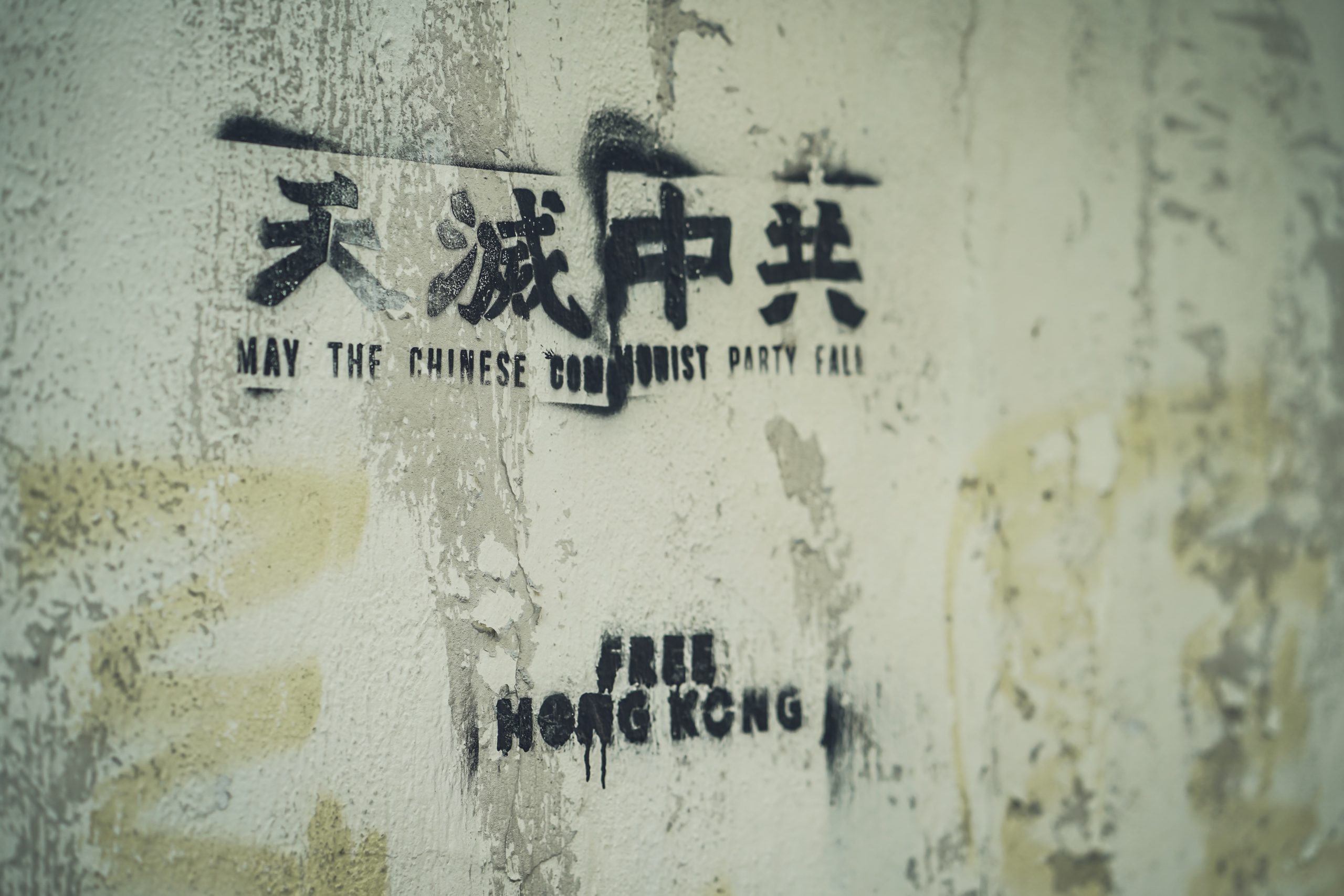by Arul Kurian
The new National security law imposed by China has brought Hong Kong to the verge of despair. It is the newest and the most dramatic move in the tug of war between China and the people of Hong Kong. The Chinese moves to establish its authority over Hong Kong has met with fierce resistance from the locals. This latest law could criminalize people on the charges of “secession, subversion, organization and perpetration of terrorist activities, and collusion with a foreign country or with external elements”. These charges have been very loosely incorporated in the act to widen the scope for government action. The ramifications of the new law have been profound, according to the latest reports from Hong Kong. Protests are still extant but in reduced frequency and numbers. Banners with popular slogans “Free Hong Kong” and “Revolution of our times” are replaced by blank papers, as these slogans have been banned by the new law. Business tycoon Jamie Lai who has been running the pro-democracy media establishment “Apple Daily” and activists like Agnes Chow has been arrested. Leaders of the movement like Joshua Long and Nathan Law have disbanded their political organization which was all set to fight in the September elections. The international community had been very cautious in their response, since every major country is preoccupied with the pandemic. The crisis has further worsened the already stressed relations between China and the west.
Hong Kong had been formally transferred from Britain to China in 1997 as per the terms of an old lease agreement. There had been growing discontent against the authoritarian nature of China since then. The protests against the educational reforms proposed in 2012 saw people coming out in large numbers. This was followed by the proposed electoral reforms in 2014 which led to a wave of demonstrations called the Umbrella Movement calling for “true universal suffrage”. The reforms would have given China the ability to pre-screen the candidates for the Chief Executive (top political post) of Hong Kong and to reject anyone who doesn’t tread its line. There have been reports of China silently but steadily strengthening its grip on the territory. There were instances of abductions of book store owners who were pro-democracy sympathizers. Property in Hong Kong had been flooded by the massive influx of money from the mainland. Big businesses in Hong Kong are generally averse in taking an anti-Beijing stance fearing instability and backlash from the powerful Chinese establishment. Even the electoral system of Hong Kong is biased in favour of Beijing. The Chief Executive of Hong Kong is elected by a “nominating committee” of 1200 people, the majority being pro-Beijing elites.
The introduction of an extradition bill in 2019 by Hong Kong Legislative Council finally gave spark to a grand uproar. This bill could have extradited fugitives to mainland China from Hong Kong. The feeling of loss of autonomy and suspicion in the Chinese legal system led to protracted mass pro-democracy protests in Hong Kong for over a year. Nearly 2 million people have reportedly participated in these uprisings. The protestors accused China of diluting the principle of “One country Two systems” promised to them by the mini-constitution or the “Basic Law”. According to this principle, Hong Kong was recognised as a special administrative region of China and was allowed to continue with “its capitalist system and way of life” for at least 50 years from 1997.
By June, Chief Executive Carrie Lam had reversed and indefinitely delayed the bill to placate the public sentiment. The tensions still showed no signs of pacifying as the protesters put forward five demands to the government including full withdrawal of the extradition bill, probe into police brutality, and implementation of universal suffrage. “Five demands, not one less” was the popular slogan. The movement showed vitality and endurance even in the backdrop of the pandemic. Unfazed by the ongoing protests, by the end of June 2020, the government clamped down the National Security Law. The excitement of the people gave way to a sense of foreboding.
The call for support to the international community has largely met with silence. Only the UK and the US came up with some semblance of support. In July, UK had offered a path to British citizenship to nearly three million of Hong Kong’s residents. The US imposed visa restrictions on some high-ranking Chinese and Hong Kong officials responsible for the crackdown. The Trump administration had also taken steps to remove the trade and economic special status previously granted to Hong Kong and declared that it would only be treated like any other Chinese city. Being caught up in the middle of the trade war seems to further exacerbate the problems of Hong Kong.
The Peoples Republic had been consistently hostile towards political freedom, since its inception seventy years ago and is showing no signs to change course. The United Nations could not be relied for any meaningful action, with China in the P-5 group of nations holding the power to veto. The US was expected to rally its allies and put more pressure on China in the United Nations and other international fora. The US currently seems unable to do so and appears to be withdrawing from the role of an undisputed global leader. The US has also lost the confidence of many of its closest allies due to the unpredictable nature of the present administration. But, having said so, diplomacy is the only option left with the people of Hong Kong to retain their much-valued freedoms. There lies a responsibility on the global human rights organizations to keep a keen watch on the developments and represent them at requisite fora. Democratic governments must leverage with China using their huge volumes of trade to put its human rights record straight. A carefully calibrated and concerted diplomatic effort could still salvage Hong Kong. More expressive action is perhaps due from democratic powers like United States, United Kingdom and the European Union.

